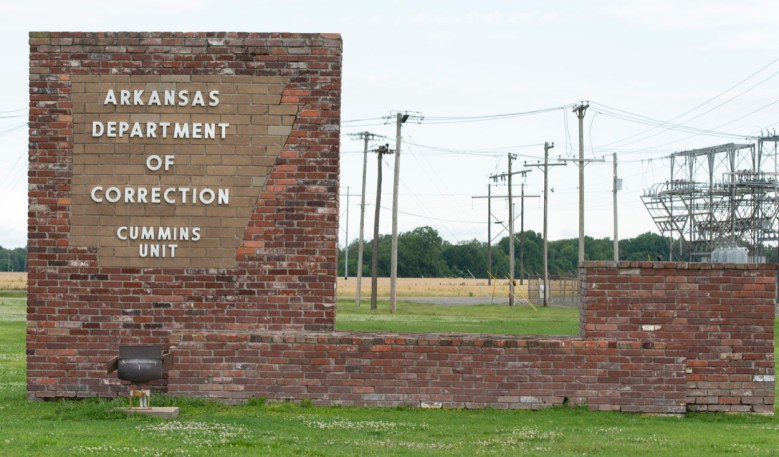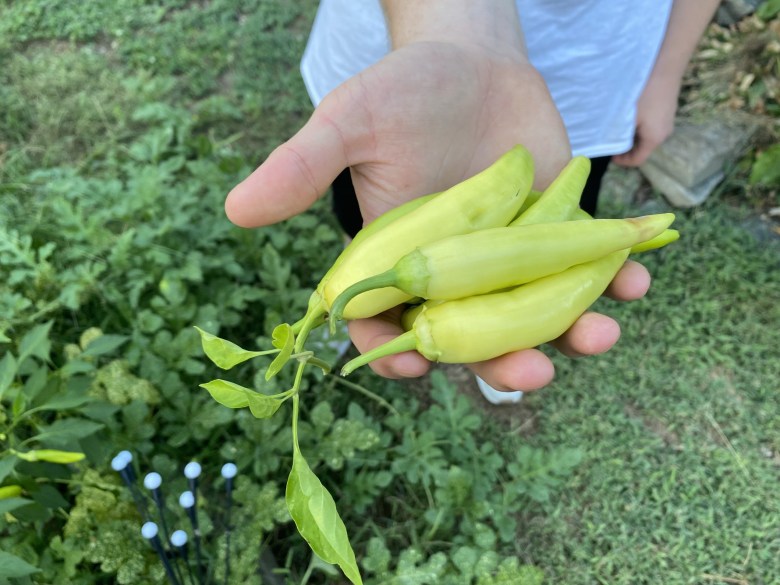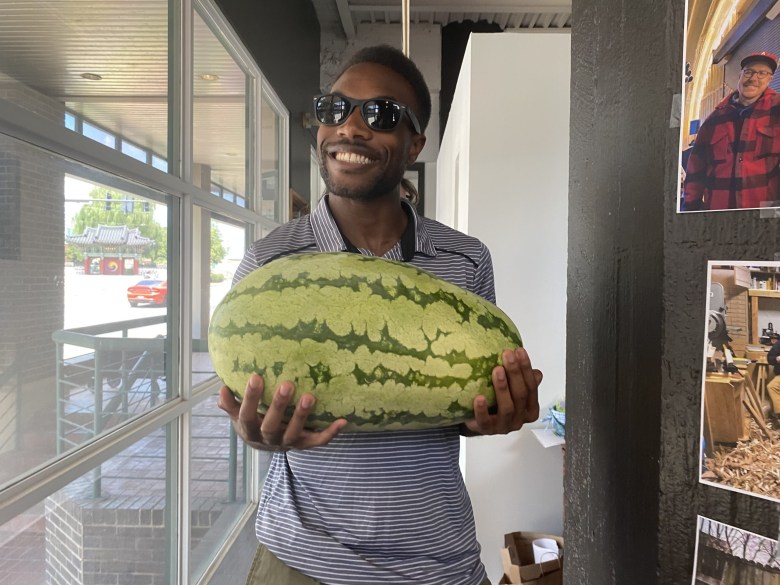This August, about 200 inmates are anticipated to begin the Prison Education Program, or PEP, at three prisons throughout the state, marking expansion for a program that seeks to provide jailed individuals with second opportunities.
PEP is supported by a federal Pell grant and is run by Southeast Arkansas College, a public community college located in Pine Bluff. It began operations at Cummins, Varner, and Delta Regional prison units in the fall of 2022.
The college has collaborated with the U.S. Department of Education’s Second Chance Pell Experimental Site Initiative, Restore Hope’s Second Chance Education Initiative, and the Arkansas Department of Corrections.
Through the program, incarcerated students can obtain an associate’s degree with credits that they can use to meet prerequisites at four-year institutions both inside and outside of Arkansas. Within the jails, over 16 SEARK teaching members instruct nearly 40 classes.
In May 2024, there was only one graduate from the program’s inaugural graduation. There were thirty graduates this past spring.According to Jennifer Colvin, SEARK’s dean of science and humanities, the program is expanding rapidly and jailed individuals are very interested.
Offering a comprehensive general studies associate’s degree program over eight or sixteen weeks, depending on whether a student enrolls in classes in the summer, fall, or winter, staff members instruct inmates in the same way they would students on campus. Like a college student outside of prison, incarcerated students have an advisor to help them navigate their studies. Colvin, meantime, schedules classes and oversees financial aid employees, serving as a kind of go-between for the institution and the jails. “It’s crucial that we maintain their experience, quality, and everything as close to the campus experience as possible,” Colvin stated.
Inmates interested in enrolling in PEP apply to specific classes, and information about the program is distributed across the jails. After reviewing the applications, SEARK authorizes the enrollment of the pupils. Although there haven’t been any disciplinary problems thus far, Colvin stated that the detained pupils are held to a higher standard when it comes to classroom behavior. [This] does demonstrate to you that they can get together and engage in discussions, debates, regular coursework, group projects, and all of that without any problems, Colvin added.
According to Colvin, SEARK does not exclude applicants from the program on the basis of their criminal history, but ADC has other restrictions that could affect who is accepted. After screening applications, ADC occasionally suggests incarcerated individuals for enrollment. The program has included those serving life sentences as well as those serving time for various levels of offenses.
According to Colvin, there are numerous jails in the Pine Bluff region, and after doing their time, inmates frequently want to remain there. Colvin thinks there are several ways in which this program benefits the community. First of all, it provides a way ahead for incarcerated individuals, particularly youth.
“Everyone is impacted when you start making those kinds of changes in people’s lives,” Colvin added. Whether it’s someone in your personal life or not is irrelevant. These things occur in the society in which we all live. In other words, there is less crime in areas with more educational attainment.
She gave the example of a student who managed to obtain a commercial driver’s license and now had a source of income.
Many of the young and old adults we teach in these programs say things like, “I got into a lot of trouble in school, and I didn’t know I could go to college.” I didn’t perform well. I skipped a lot of school or didn’t pay attention, whatever. They were unaware that they were capable. After that, they enroll, begin taking lessons, and begin to feel more confident about themselves. This alters a person’s perspective, Colvin said.
According to Colvin, she wasn’t sure about the program at first. Prior to entering higher education, she spent a considerable amount of time teaching in public schools and lacked experience working in corrections. However, after witnessing the program’s impact, she has altered her view. “Regardless of your circumstances, future, and definitely your past, I do believe in the highly transformative nature of education,” she remarked.
Education can have a ripple effect, according to Colvin, even for those who are permanently imprisoned and unable to apply their education outside of prison. Even a slight cultural shift can occur when younger inmates discover that senior inmates will receive education and feel inspired.
According to her, your peers have a far greater influence on your choices than external organizations, political bodies, and other things. Therefore, I firmly think that it is transforming in that way. Additionally, you must consider it holistically rather than merely saying, “Oh, they can leave and join the workforce.”
After serving 28 years in jail, Matthew Boivin attended Cummins to continue his education through PEP. Before being paroled out of jail last spring, he finished the majority of his associate’s degree. He stated that he made an effort to learn as much as he could while he was behind bars. Boivin said that he was among the first individuals to enroll in SEARK’s program when it was introduced to Cummins. He claimed that although he had always desired to attend college, he was never given the opportunity.
He claimed that PEP has given him a feeling of direction and attention, and he was able to maintain a 4.0 GPA. He claimed that it was an inspiration to the other men in the prison who would observe the pupils carrying books to class and encourage them. “What gives me a sense of normalcy is the sense of purpose and accomplishment, the sense that I’m finally accomplishing something,” Boivin explained. Boivin is now a handyman with his own company.
According to Boivin, the jail education program only confirmed that this is where I should be. It is my responsibility to do this. It is my responsibility to educate myself. The jail education program helped me realize that I am meant to be someone greater than who I am now.
According to Boivin, there were days when it was difficult. ADC officials would occasionally claim that they lacked the security necessary to transport students to class or that students were not permitted to utilize specific resources, such as hardback textbooks. In the barracks, students would frequently finish their coursework after class.
According to Boivin, there was always something in the way. Therefore, simply finishing the program was a success. Every day was a way to get back [to class] and say, yes, I am going to be something.
Boivin has one class left to complete his associate s degree. He has also signed up for a class at Pulaski Technical College so that he can advance his repairman skills. His goal is to work towards a bachelor s degree in animal science; he learned to work as a farrier shoeing horses and training dogs while in prison and liked the work. Boivin also said that the sociology and psychology classes he took in PEP helped him transition out of prison. Being incarcerated for nearly 30 years, he said, makes your world stop.
Just having that knowledge has helped me, being a long term convict, to adapt, to see how people s minds work, to see where they are or what the whole functioning of society is, because I don t have a clue. It s not the same world it was in 1996, he said.
Colvin hopes this program keeps growing. The program has been rewarding for incarcerated people, but also for the professors who teach them. Participating, the educators told Colvin, helps remind them why they started teaching in the first place.
I hope that more people get awareness of how transformative education is, how it changes communities, and how incarcerated individuals while they are separated are a subset of our community, she said. Reforming and giving the tools that people need to live a productive lifestyle is just so, so important.
It’s dragon-slaying time!
The Arkansas Times, which relentlessly defends the fundamental rights and liberties in our community, stands as a light of truth in an era when critical voices are being silenced more and more. Our commitment to provide uncompromising journalism has never been more important, especially with Arkansas in the center of a broad culture war that is impacting our libraries, schools, and public conversation. We can’t accomplish our goals of defeating dragons and holding those in positions of authority responsible alone. You can guarantee that independent journalism in Arkansas not only endures but flourishes by making a contribution today. We can join the fight and make a difference together.







